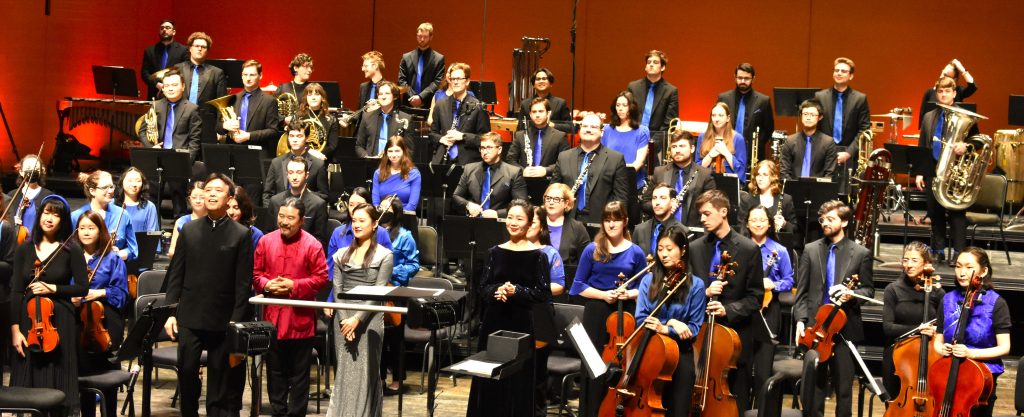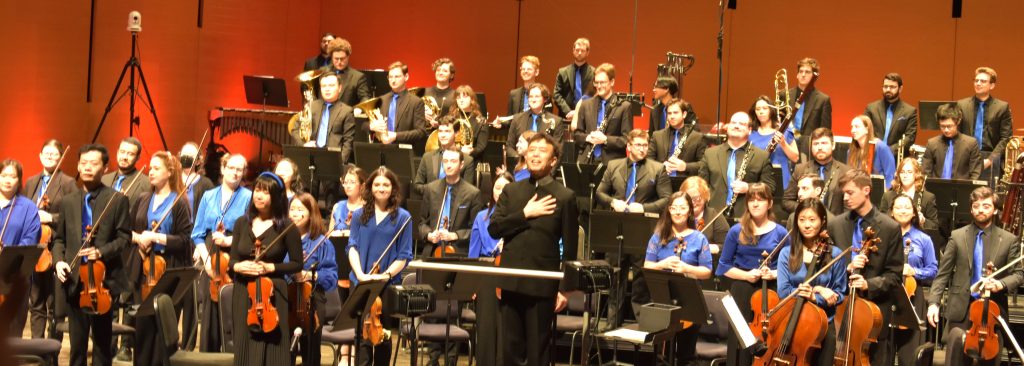
by Kevin T McEneaney
Chinese New Year and Spring Festival is governed by a lunar calendar based upon a twelve-year cycle of the Zodiac. This year’s festival began on February 10 and its animal mascot is the dragon. This annual concert , now in its fifth year, at Bard’s Sosnoff Theater under the enthusiastic baton of Jindong Cai who opened with Spring Festival Overture by (1956) Li Huanzhi (1919-2000), which offered an exuberant and extroverted celebration of the coming New Year.
TŌN performed the first movement of this four-part work that offered a complex interplay of folk-tune motifs beginning with two suona (double reed instrument) tunes; the second movement features a lead oboe masterfully played by David Zoschnick, then the trumpet of Giulia Rath led to the resounding climax and emphatic conclusion.
A more introverted work followed: the first and fourth movements from Cantonese Suite (2005) by Ye Xiaogang (b. 1955). This work provided an intricate, subtle weaving of four traditional Cantonese folk melodies recalled from Ye’s childhood. Ye is one of China’s most prolific composers (receiving commissions from both China and n the United States), and I warmed to the intimacy of the work immediately. (Over a dozen of his albums are available in the United States.) He has composed many symphonies, concertos, and chamber music. This work offered an ethereal sense of peace and appreciation of nature. If you have any interest in contemporary Chinese music, you might wish to start with his music. The velvet flutes of Olivia Chaikin and Chase McClung were memorable as was the tuba playing of Tyler Woodbury.
Diu Diu Diu Dang (2018) by Chang Shiuan offered robust rhythms based upon a folk song, yet the rhythms were inflected with an American Western accent on the watery theme of “drip, drip, drop.” One felt like getting up and dancing in the aisle.
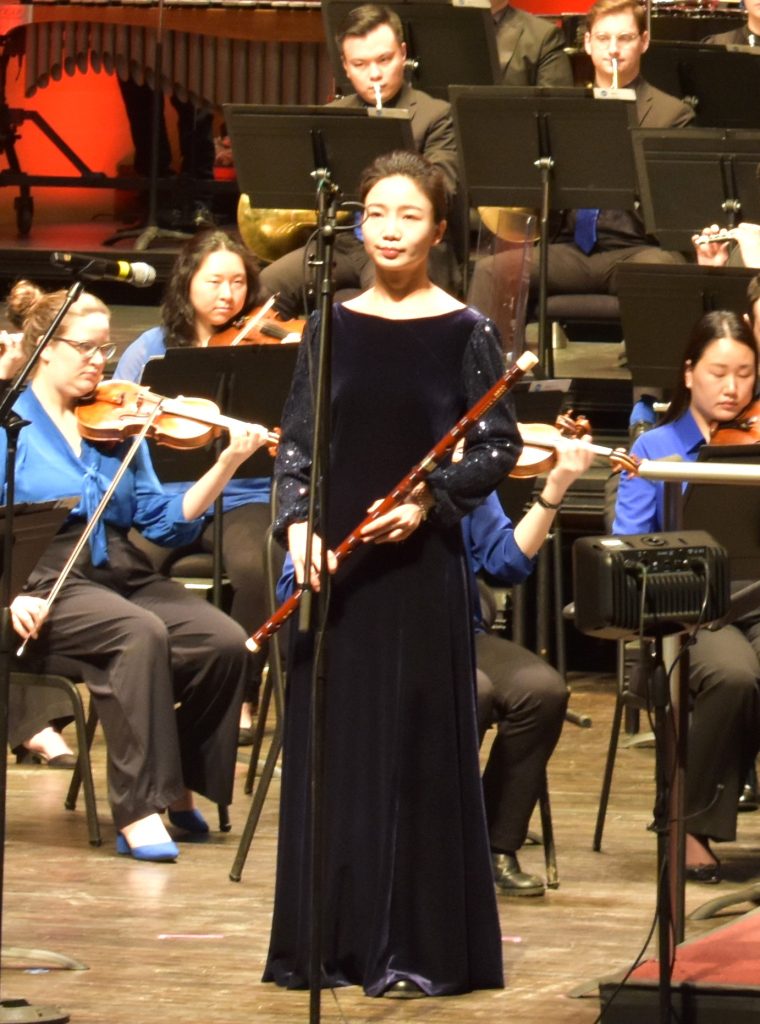
Blooming in the Spring, (2009, revised 2023) a concerto for dizi (Chinese long bamboo flute) featured soloist Feng Tianshi who began to play dizi at the age of five and is now one of the leading dizi performers in China. Here the beauty of spring flowers during a meandering stroll was depicted and dramatized with nostalgic elegance.
After intermission Erhu Rhapsody No. 6 (2023) by Wang Jianmin, noted for his many compositions on traditional Chinese instruments, presented a showcase for the two string erhu of Zhang Haiyue, a doctoral candidate in erhu, who has won many prizes. This work resembled the dynamics of a piano concerto with the erhu performing a contested dialogue with the orchestra. Evoking the heights and valleys of Tibetan geography and landscape this work was breathtaking. The range of sound and emotion from the single string made it sound like the erhu was a more important instrument than any in the orchestra.
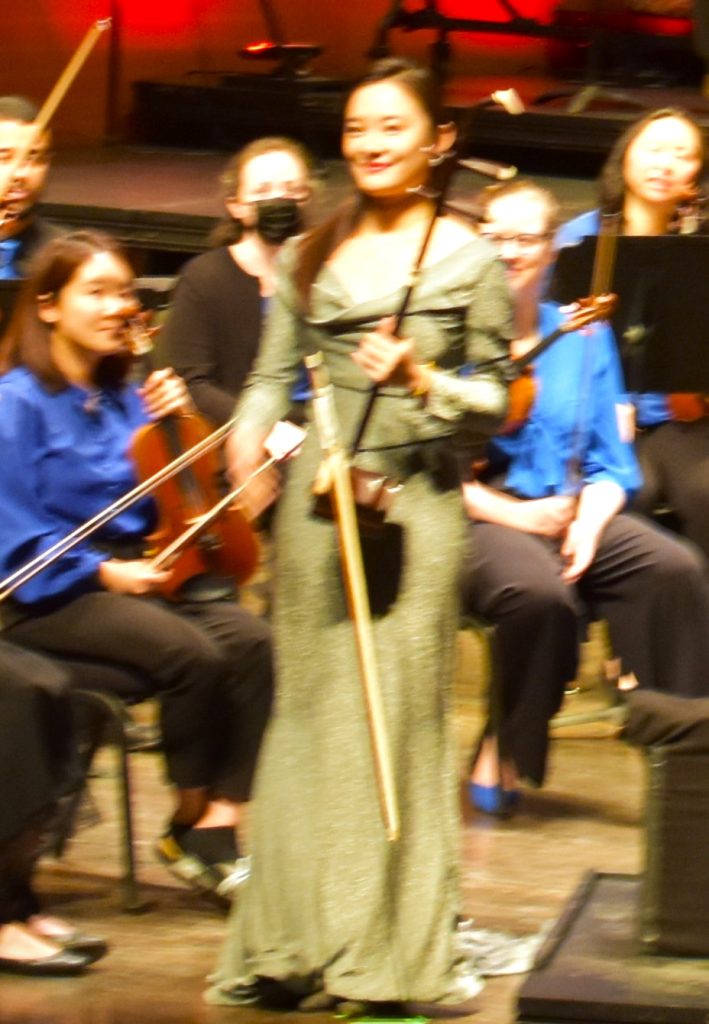
The Magic Land suona concerto for full orchestra by Xinyan Li (2023) featured Guo Yazhi (whom I have heard a few times previously) on both soprano suona and bass suona. After highlighting the stratosphere with the small suona, he turned to showcase the bass sonata, then alternately switched from one to the other quite rapidly, then transitioned from serious playing to comic mode, evoking the pyrotechnics of circus ambiance. This amusing crescendo in the program offered welcome comic relief from this great master of the instrument whom I once demanded to meet when I first heard him play a few years ago. His performance resulted in a standing ovation. Percussion by Petra Elek was superb.
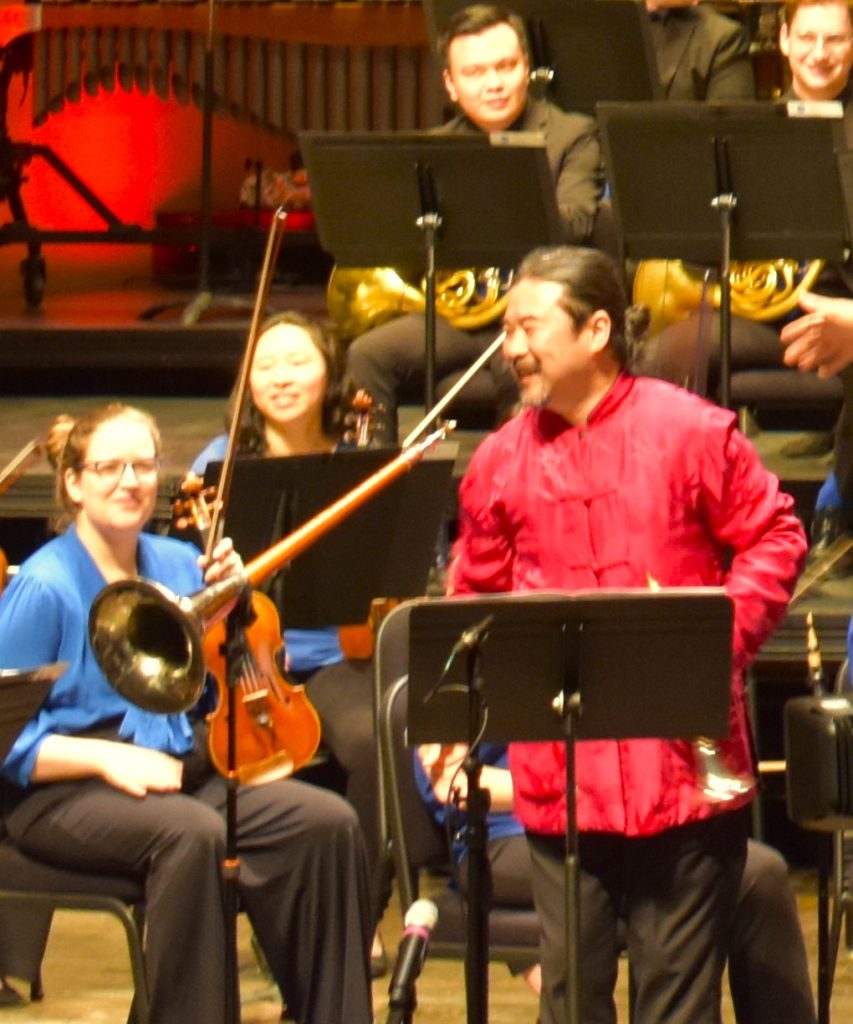
The finale was Joyful Songs of Mountains and Waters by Wang Danhong, a recent work by a notable female composer, which was inspired by the rural festivals of the Miao people of southern China. This work appeared to chart the development of this local culture from o e of poverty and isolation to discovering prosperity and communication with China and the world at large, as her techniques exhibited both traditional Chinese motifs and Western motifs. Neither overly extroverted nor intensely introverted this work aptly summed up the dynamics and aesthetics of the modern world in the evolution of international music, albeit with Chinese nuance.
Here was a concert that highlighted the new directions of Chinese music while showcasing the soloist achievements of traditional instruments in the context of Western instruments by contemporary Chinese composers. This opening day of the New Year may be the happy harbinger of a great musical year to come!
